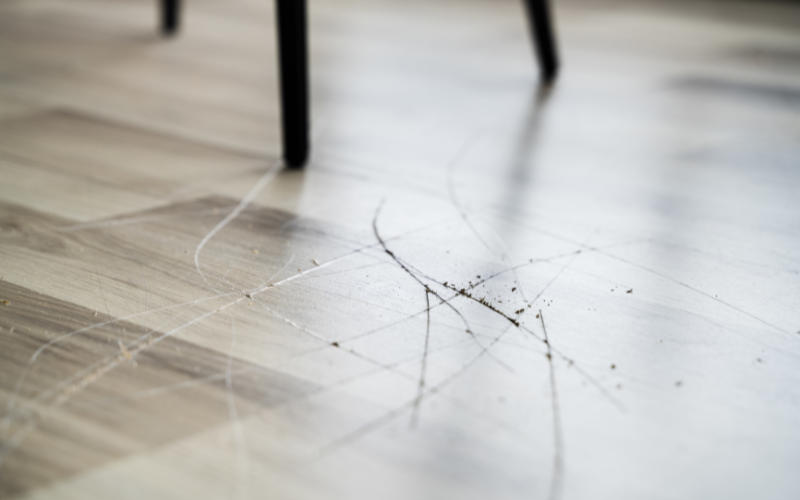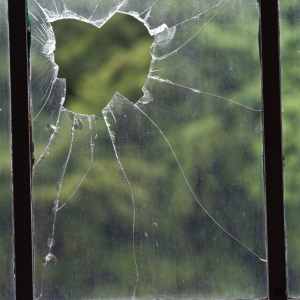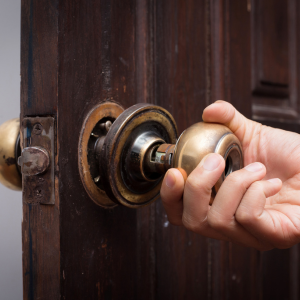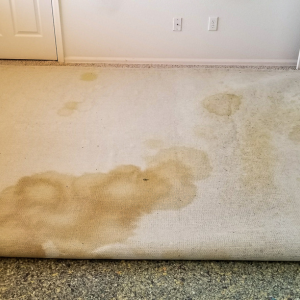
Understanding Tenant Responsibilities in North Carolina Rental Agreements
There are different types of damage that a tenant can do in North Carolina. It is important to know what the tenant’s responsibilities are in the rental agreement. Following the rules in their lease is what tenants need to do to keep the rental property clean and safe.
That is, making sure that things don’t get broken in ways other than normal use, like rugs and walls don’t get holes or stains. North Carolina law says that tenants must tell their landlord right away about any repair problems. Small problems don’t get worse and do much damage this way.
It is also the tenants’ job to keep the tools, equipment, and buildings in good shape. Damage that is blamed on the renter could happen if they don’t. People who rent should know what parts of their lease say they are responsible for repairs and maintenance, because these can change how much of their security deposit they get back.
By being careful, tenants help keep the property in good shape and protect their financial interests when their lease is up.
Drafting Comprehensive Lease Agreements to Address Potential Property Damages
When you write thorough lease agreements for properties in North Carolina, you should clearly distinguish between damage caused by tenants and the right way to use the property. This is for the safety of both owners and renters. Some types of damage to the property are normal, like small fraying in the carpet or faded paint. Other types of damage are caused by the renter, like broken windows or big stains on the carpet.
A clear set of rules that tells renters what they need to do for repairs and upkeep can help prevent disagreements. There should also be detailed move-in inspection reports with pictures from the landlords showing how the property looked when the tenants first moved in.
This paperwork is very important for finding out what kind of damage may have been done to the house when the lease was up. It is also important to make it clear how to report damage and when it needs to be fixed. This keeps everyone honest and responsible.
By writing these things into the lease deal, lenders can protect their own interests and ensure tenants know what the law in North Carolina requires.
Strategies for Screening Tenants to Minimize Risk of Property Damage
It is very important to use good screening methods if you want to lower the risk of losing your North Carolina real estate. People who want to rent from landlords should have their past checked carefully. These checks should look at the person’s financial history, rental history, and criminal record to see how trustworthy and responsible they are.
Renters should always be able to pay their bills, so it’s important to check their income and job. Talking to past owners can reveal a lot about a tenant, such as whether they’ve ever damaged property.
Lenders can spot problems early on when they use detailed rental forms that ask for a lot of information. Interviewing or meeting possible tenants in person is a good way for landlords to learn more about them and discuss what they need to do to keep the property in good shape.
During this process, it’s important to ensure that everyone knows the lease rules, what they need to do, and how to take care of the property. North Carolina property owners must follow strict rules from the start. This will protect their investments from major damage caused by renters and ensure that the property lasts for a long time.
Educating Tenants About Their Responsibilities to Avoid Property Damage
It’s very important to teach renters in North Carolina real estate what they need to do. Tenants should know that regular maintenance, like changing the air filters and reporting leaks immediately, can keep things in good shape and avoid damage.
They should know that if they damage walls, break fixtures, or stain rugs, whether on purpose or by accident, that is renter damage and they need to pay to fix it. When someone rents from you, you can give them a list that shows them how important it is to do regular care and upkeep so that things don’t break down for no reason.
If you give them clear rules on how to use the property, they will take better care of it and avoid problems during move-out checks. By being open with tenants and clear about what is expected of them from the start, landlords can help tenants learn how to keep the property in good shape during their lease term.
Preventing Tenant Damage: Best Practices for Landlords

People who own property in North Carolina can stop damage from renters by following a few best practices. There are many ways to ensure you rent to responsible people, such as background and credit checks.
If the lease is very clear about the rules and instructions for taking care of the property, everyone knows what they need to do. Regular checks on the property help owners find problems early and fix them quickly so they don’t get worse and cause a lot of damage.
Giving renters directions on how to clean and maintain appliances and fixtures properly can also help keep them from getting broken by accident. When you encourage renters to talk to you, they are more likely to report small issues before they worsen and need expensive repairs.
Landlords may also ask for security deposits or renter’s insurance to cover any damage that may occur as an extra financial safety measure. If you’re a landlord in North Carolina and need guidance on protecting your rental property or handling tenant damage disputes, contact us today to learn how Cardinal Home Buyers can help.
Common Causes of Tenant Damage to Rental Properties
Property owners in North Carolina need to be able to tell the difference between damage done by renters and how the property should be used. Tenants usually damage rental properties because they are careless or don’t know how to use them properly, which results in costs that go beyond normal repair.
Tenants often damage properties by making changes without permission, like painting the walls without permission or putting things in the wrong place. You can also do much damage by being careless, like not reporting breaks or letting mold grow because there isn’t enough airflow.
Pets cause damage more often than not. When renters don’t follow pet rules, floors get scratched, rugs get stained, and woodwork gets chewed on. Broken windows or appliances cost more to fix, whether you do it on purpose or by being rough with them.
These issues show how important it is to check on the property often and ensure that renters know how to keep it in good shape and avoid damage.
The Impact of Tenant Negligence on Rental Property Value and Maintenance Costs
Landlords who want to keep the value of their houses high and make repairs on time should pay attention to this. Renters who aren’t careful can damage rental houses, which makes them worth a lot less.
When renters are careless and break things, stain furniture, or damage walls, the owner usually has to pay to fix it. Getting these things costs more than getting new tools or painting the walls.
Being careless can lead to damage that costs a lot to fix, which lowers the value of a rented home. People who own homes need to know the difference between normal wear and tear and damage done by careless renters. In this way, they can make the most of what they have and make sure renters pay for any damage they cause while they are there.
North Carolina Laws on Security Deposits and Property Damage Compensation
People in North Carolina who own or rent homes need to know the difference between damage done by renters and normal use of the home. This is because they have to pay for theft and damage to goods. You can use your North Carolina rent deposit to pay for damage not caused by normal use.
People often see small flaws as signs of use, like nail holes in the walls or rugs that have been used over time. On the other hand, damage from the rental could include broken windows, spots on the rugs, or holes in the walls.
North Carolina General Statutes require owners to give a written list of all the items taken out of the security deposit within 30 days of the lease’s end. The owner and the renter can use this list to determine how to split the set costs.
Lenders should take clear shots of the house and check it out completely before renters move in. If necessary, they can use these pictures and reports to fight claims against the security deposit for damage that wasn’t caused by normal use. These rules ensure that both the renter and the owner know what they can and can’t do when it comes to taking care of the property and paying rent.
How Local Housing Codes Influence Landlord-Tenant Relations Regarding Damages

The rules about housing in North Carolina have a big effect on how owners and renters deal with each other. They spell out what kind of damage a renter is responsible for and what kind of use is okay for the property. These housing rules tell landlords what they need to do to keep a house in good shape and ensure people can live there. This ensures everyone knows what they need to do.
This set of rules can be used to determine who is guilty and how much damage was done. Because the renter wasn’t paying attention, the property might not meet the minimum requirements set by local housing codes because of broken windows or plumbing that needs to be fixed. In this case, the owner may have every right to call these issues “tenant damage.”
That being said, damage that builds up over time from regular use, like faded paint or worn rugs, is usually seen as a normal part of the house’s aging process. There are rules in North Carolina about who is responsible for what. This helps owners keep rental homes in good shape and keeps tenants from being wrongly blamed for damage they didn’t cause.
When there are problems with the property, this legal system pushes landlords and tenants to be fair and take responsibility.
The Role of Property Inspections in Identifying Tenant Damages Early
One important way to find damage that renters have done to North Carolina real estate is to check on it often. This way, landlords can keep a close eye on their rental homes and make sure that any problems are found quickly, before they get worse and cost a lot to fix.
Some landlords keep detailed records of how the property looked before and after the tenant moved in. This helps the owners tell the difference between damage caused by careless or mean renters and damage that builds up over time. There could be disagreements about what to do with the security deposit when the lease is up. Full records of inspections can be used as proof in this case.
Also, owners and renters can talk to each other more easily when there are regular checks. This speeds up the repair process when something goes wrong. The renters will be happy because they will live in a safe and clean place. This way also helps the property’s value stay high.
How to Document and Report Tenant-induced Property Damage
In North Carolina, landlords must keep exact records of any damage their tenants cause and report it. First, you need to make sure there are clear pictures and written notes that show the house as it was when you first bought it. Then, you need to do a full move-in check.
It will be easy to see how things stack up against the norm after this check. During the loan time, it’s smart to keep an eye on it often in case anything goes wrong.
Renters who find damage should quickly write it down with pictures that show the damage, detailed descriptions, and any repairs or bills that need to be paid. As a first step, you need to write to the renter, show them proof of the damage, and let them know about any due dates they may have under the terms of their lease.
Keeping detailed records of all contacts can help if there are arguments or the need to go to court. It also makes people more likely to be honest. Digital tools for handling properties can make this job even easier by letting you make changes right away and keep track of records. This way, lenders can keep track of how each property is doing over time.
Steps for Landlords to Handle Tenant Property Damage Effectively
When a tenant damages a rental property in North Carolina, the owner should first do a full inspection to get a good idea of how bad the damage is. To keep an accurate record, you need to write down and photograph many details.
Once that’s done, owners have to check the lease to see if the tenant broke any rules about damage or upkeep of the property. You should let the renter know what was found and how much it might cost. Most of the time, this can be done without going to court.
Landlords should be clear about any damage fees that will be deducted from renters’ security payments. If tenants and owners can’t agree, they may need to go to mediation or small claims court. During this process, they must follow North Carolina’s rules very carefully.
If they do these things, landlords can deal with damage to their properties caused by tenants while maintaining professional relationships and following state laws.
Repairing vs. Replacing: Cost-Effective Solutions for Damaged Rental Units
Landlords in North Carolina need to distinguish between damage caused by renters and normal use of the property to determine the best way to handle repair costs. When landlords have broken rental units, determining whether something needs to be fixed or changed can have a big effect on their budget.
It’s often easier to fix small problems like stains on the carpet or holes in the wall than to buy new things. This way, the property stays in good shape without having to pay extra for unnecessary fixes. In normal situations, it might be enough to fix holes in the wall or steam clean the rugs. A renter may need to replace the unit if they break more important things like windows or fixtures. This will make it work and look good again.
By carefully examining each situation, property owners can devise low-cost ways to protect the property’s value and ensure that tenants follow North Carolina’s rental rules regarding security deposits and responsibilities.
Mediation and Dispute Resolution for Tenant-Landlord Conflicts Over Damages

Sometimes, North Carolina renters and owners can’t agree on who is responsible for damage. In these cases, mediation is very important. So there aren’t any fights, both sides need to know the difference between damage done by renters and the good use of the land.
Renters and owners are free to talk to each other during mediation. This helps both sides understand what’s wrong with the property regarding damage claims. In North Carolina, the Residential Rental Agreements Act spells out who is responsible for damage and upkeep, which may take up a lot of time during mediation.
Dispute resolution systems try to keep things calm by focusing on proof, like photos or receipts, that show the difference between damage done by renters and normal use of the property over time. People save time and money by going to small claims court instead of going to a big court. This also helps keep the bond between the landlord and the tenant strong.
In North Carolina, the law states that mediation can help people make fair deals and protect everyone’s rights.
Navigating Small Claims Court for Unresolved Tenant-Landlord Disputes Over Damages
North Carolina renters may have to go to small claims court to settle claims with landlords over damage the renters caused. To avoid a fight over how to keep the property after the lease is over, it is important to know the rules.
The house has normal signs of wear and tear, like faded paint or slightly broken carpet. The landlord should be able to tell the difference. Renters can break windows and make holes in the walls. Small claims court is a good place for lenders to go when a renter’s security deposit doesn’t cover the damage they say they done.
To win, landlords should gather a lot of proof, like pictures of the property’s state before and after the renter moved out, repair cost estimates, and any lease agreements that spell out who is responsible for maintenance. Following North Carolina’s rules about security fees is also important. You must give renters correct, detailed lists of deductions within 30 days of the end of the lease.
You can settle a property damage claim in small claims court if you carefully put together and show proof of your case.
Pros and Cons of Renters Insurance in Covering Accidental Damages by Tenants
If you own or rent a home in North Carolina, renters’ insurance can help you determine the difference between damage from accidents and long-term use of the property. One of the best things about renters insurance is that it can cover damage that tenants cause by accident, like fire or water damage from a phone that leaks.
Renters may be unable to pay for repairs independently, but this security can help them. It can also make sure that landlords get paid for damage that happens out of the blue to their homes. Renters’ insurance does have some flaws, though. For instance, problems that happen over time, like walls getting scratched or rugs losing their color, are often not covered.
There may also be high deductibles or specific things that some plans don’t cover that make them less useful in some cases. Tenants need to know everything about their policy to make sure they are safe from any risks and don’t take on too many tasks that are already covered by the landlord’s insurance.
What Happens If a Tenant Ruins Your Property?
To be a good landlord in North Carolina, you need to know the difference between damage your renters cause and normal use of the property. This is especially important if a roommate hurts your property. People who rent apartments can be asked to pay rent if they break windows, damage appliances, or leave a lot of stains on the rugs.
The rule in North Carolina states that when there is a lot of damage, the owner can use the security deposit to pay for repairs. If the damage exceeds the security deposit, the owner can sue the renter to get the extra money.
When renters file claims against landlords, landlords should keep detailed records and pictures of all damage. An in-depth check-up before and after a tenant moves in or out can also help you tell the difference between damage the renter did and normal wear and tear that happens over time.
By following these rules, you can help protect property owners’ capital and ensure that renters in North Carolina are treated fairly.
What Is the Property Damage Law in North Carolina?
Property damage laws in North Carolina are very important for telling the difference between harm done by renters and normal use of rental homes. General Statutes in North Carolina say that owners must keep their rental units in a state where people can live in them. Renters are responsible for any damage that isn’t caused by normal use.
This is a change that owners and renters in North Carolina must be aware of. Normal use is when things get worn down over time, like when paint fades or rugs break.
Renters’ damage, on the other hand, includes things like broken windows or big spots in the carpet that they don’t fix. Laws say landlords can keep security deposits to cover damage renters cause, but not for problems with how the property should be used.
If you know the specifics of North Carolina’s rules on property damage, you can make sure that everyone is treated fairly during the lease process. Landlords are required by state law to keep track of the health of their homes by checking them before and after a tenant moves out. This will help them tell the difference between reports of damage and normal wear and tear.
How Do Landlords Protect Themselves Against Damage Tenants Cause to the Property?
There are a few different ways that landlords in North Carolina can protect themselves against damage to their rental homes that is caused by renters. Checking the tenant’s past and credit history is an important part of making sure they are a responsible person who wants to live in the house.
It is important to have clear lease papers that tell the tenant what they need to do to take care of the property and how they should do it. These leases should spell out what kind of damage the landlord considers and what kind of use is allowed, which would cut down on disagreements.
Property inspections help owners monitor progress and fix small issues before they cause more damage. A security deposit also saves owners money by covering any repair costs that may arise due to tenants’ careless or bad behavior.
They should also teach tenants how to take care of the property and encourage renters to talk to them about any repairs that need to be done while they are renting. These tips will help landlords in North Carolina protect their properties from damage caused by renters while keeping the relationship between the owner and tenant friendly.
Are you ready to sell your North Carolina house faster? Whether you need to close quickly, avoid costly repairs, or simply prefer a smooth, no-stress process, Cardinal Home Buyers has you covered. We buy houses as-is and provide fair, honest cash offers so you can sell your home for cash in Raleigh, NC, and nearby areas without hassle. Our team handles all the details and keeps everything moving seamlessly. Contact us today (919) 609-5173.
Helpful North Carolina Blog Articles
- Selling Your Home And Relocating In North Carolina
- Selling A Home With Tenants In North Carolina
- Taxes When Selling Your House In North Carolina
- Selling Your Home Amid Divorce in North Carolina
- Selling A Fixer-upper Home In North Carolina’s Real Estate Market
- Selling A House While it is in Foreclosure in North Carolina
- Selling a Probate House in North Carolina
- Selling Your Home Without A Realtor In North Carolina
- Sell Your North Carolina Home With An Existing Mortgage
- Tenant Damage to Property In North Carolina
- Sell Your Home Despite Mold Issues in North Carolina
- Best And Worst Neighborhoods For Real Estate Investments In NC
- Property Tax Rates For Homeowners And Real Estate Investors In NC
- Understanding North Carolina Quitclaim Deed Rules
- Expert Property Management Services For Homes In North Carolina

| ECOURTS | EVICTION NOTICES | EVICTED | EVICTION | EVICTS | NOTICE OF APPEAL |
| MAGISTRATE | N.C. | INDIGENT | EJECTMENT | TRIAL | MONEY |
| LEGAL ASSISTANCE | LEGAL AID | LAWYER | ATTORNEY | PETITION | JUDGMENT |
| HAZARD | COMPLAINT | BOND | WARRANTY | INBOX | |
| COUNTERCLAIMS | ACCOUNTING |
